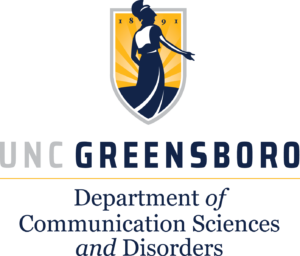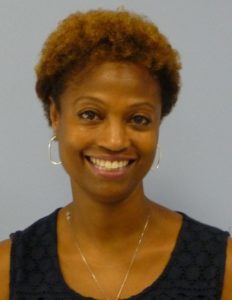UNC Greensboro and Lexercise Partner for Professional Development
Written by Sandie Barrie Blackley, Speech-Language Pathologist
Published on September 6, 2019
When their ideas for Lexercise were taking shape more than a decade ago, Sandie Barrie Blackley and Chad Myers set out to integrate the research-based approach of Orton-Gillingham (structured literacy) therapy with accessible, user-friendly technology. Since that time, every aspect of the Lexercise platform, from testing and Basic Therapy to Professional Therapy, has followed the same pattern.
That knowledge and experience placed Lexercise in a strategic position to offer professional training. Using the same approach – research-based knowledge plus user-friendly technology – the Lexercise Professional Development program took shape. Lexercise has recently been recognized by the International Dyslexia Association (IDA) as an Accredited Program.
 In 2018, Lexercise was honored to form a partnership with the University of North Carolina Greensboro (UNCG) Department of Communication Sciences and Disorders (CSD) in which Lexercise provided a course to train their speech-language pathology (SLP) masters students in the structure of written English.
In 2018, Lexercise was honored to form a partnership with the University of North Carolina Greensboro (UNCG) Department of Communication Sciences and Disorders (CSD) in which Lexercise provided a course to train their speech-language pathology (SLP) masters students in the structure of written English.
Lexercise and UNC’s Relationship Background
Sandie Barrie Blackley is no stranger to UNCG CSD. She joined the graduate faculty in 2002 to coordinate a large grant from the U.S. Department of Education. The grant provided funding to train SLP graduate students in the science of literacy and to provide them with practicum experience working with reading-impaired, at-risk adolescents in the Guilford County, NC, juvenile justice system.
After the grant ended, Sandie stayed on for another nine years teaching language-literacy graduate courses, but when she left the university in 2016, those courses were no longer offered as part of the CSD curriculum. Since CSD graduate students needed competencies in language literacy, Lexercise formed a partnership with UNCG CSD to offer an online professional development course: The Structure of Written English.

Now part of the regular clinical curriculum at UNCG, the fully self-paced, semester-long course includes units on phonology, orthography, morphology, and syntax and semantics. Participants learn the units of analysis and structures of written English, with mastery exercises included for each unit. UNCG faculty member Connie Williams serves as the faculty coordinator, holding discussion sessions with enrolled graduate students and helping them to apply the information to their practicum clients.
At Lexercise, we see this as a win-win-win. It’s good for Lexercise, it’s good for the SLP graduate students, and most importantly, it’s good for the many hundreds of children who will benefit from the skills that newly minted speech-language pathologists attained through our successful partnership.
To learn more, visit the Lexercise courses page, find out about Lexercise online professional education, read the course objectives and contact us if you have questions.
Improve Your Child’s Reading
Learn more about Lexercise today.
Schedule a FREE
15-minute consultation


